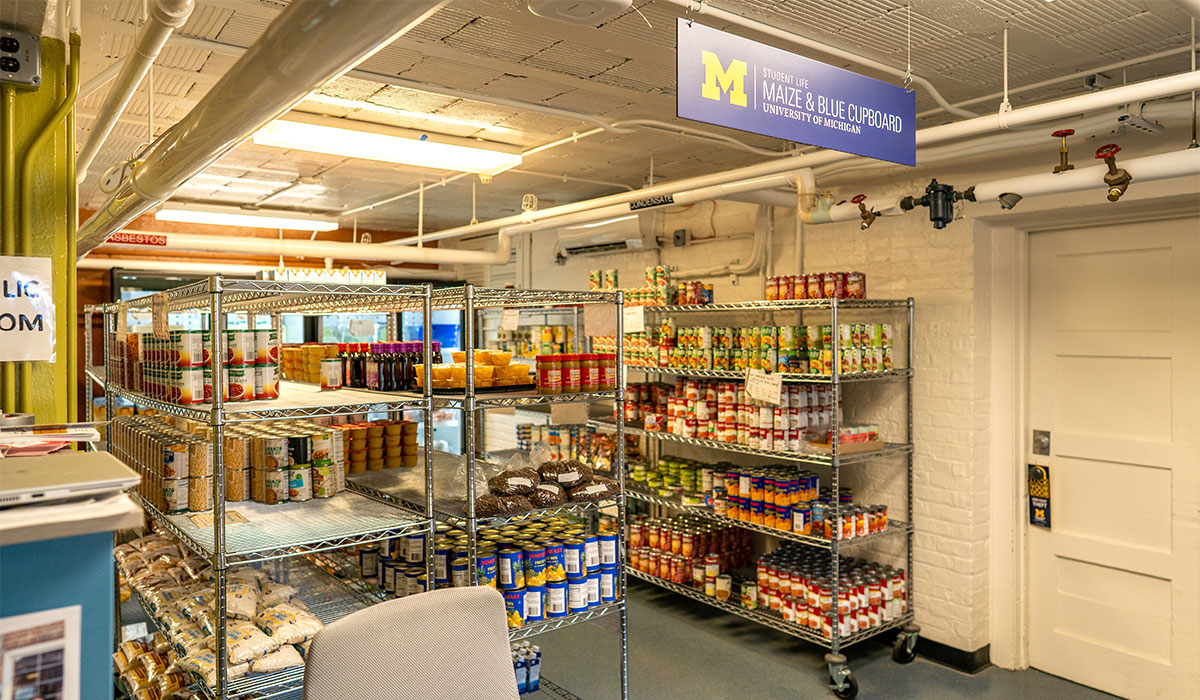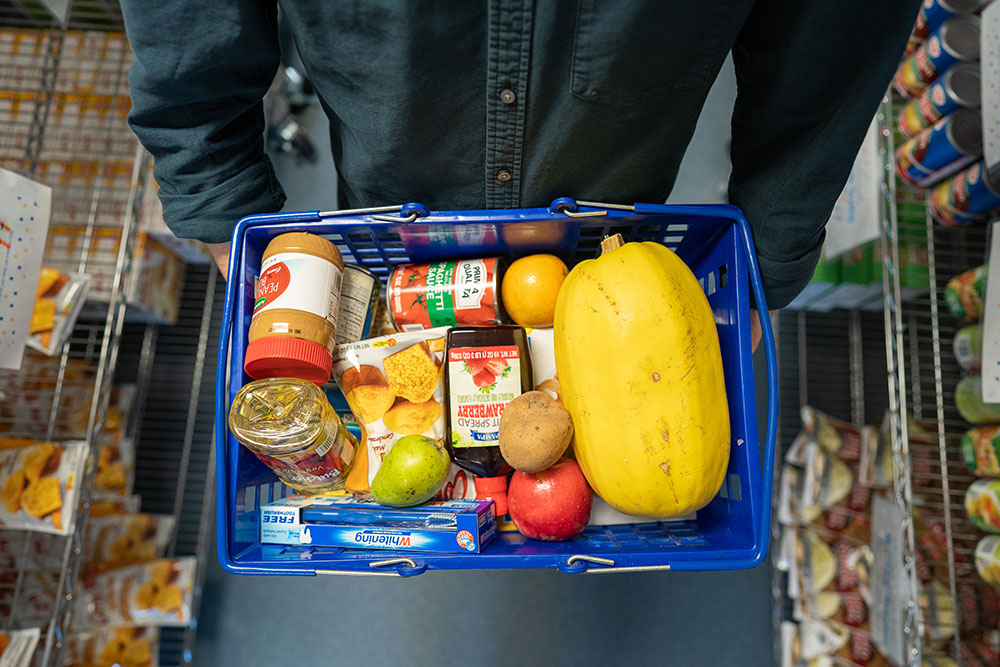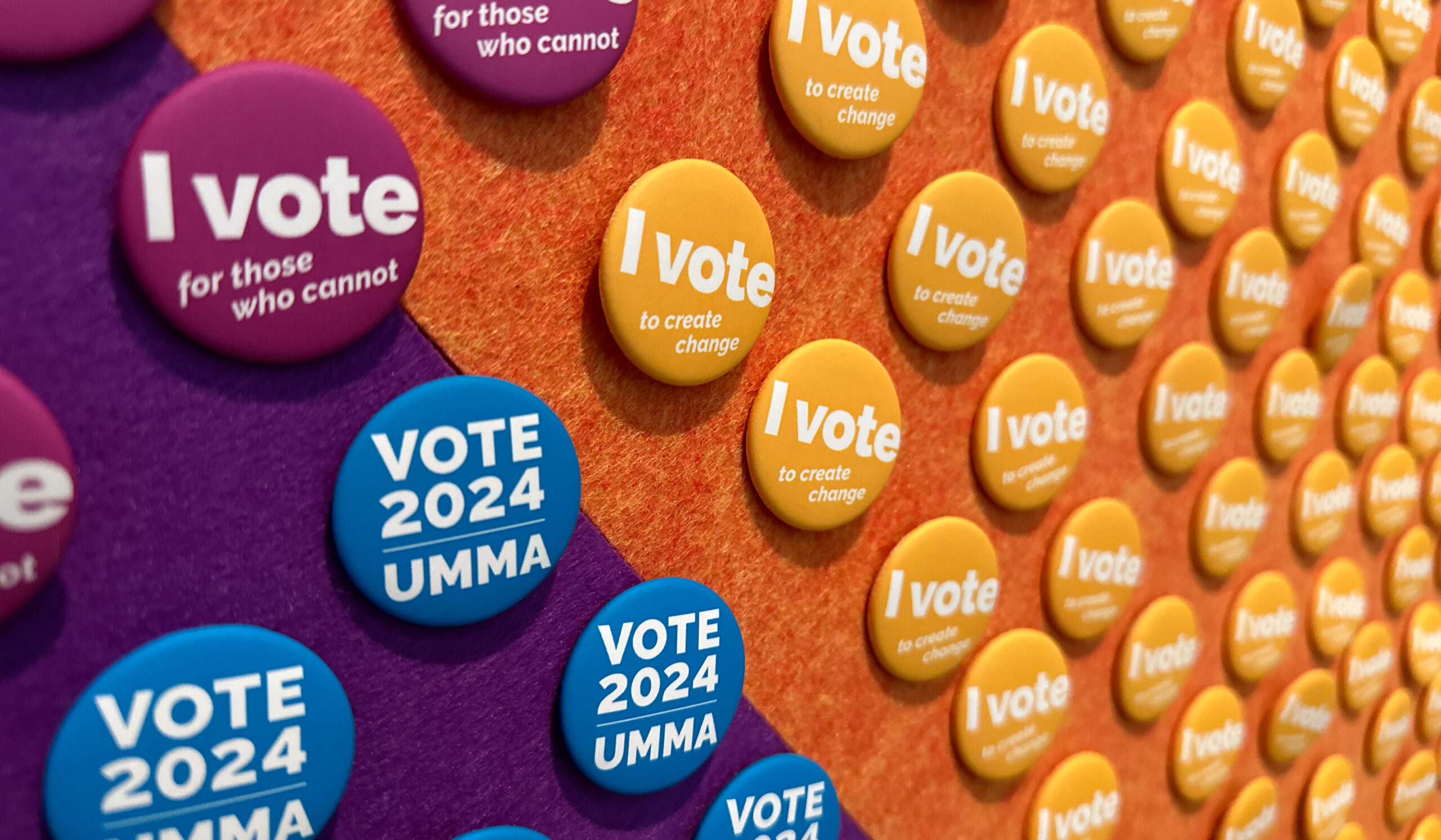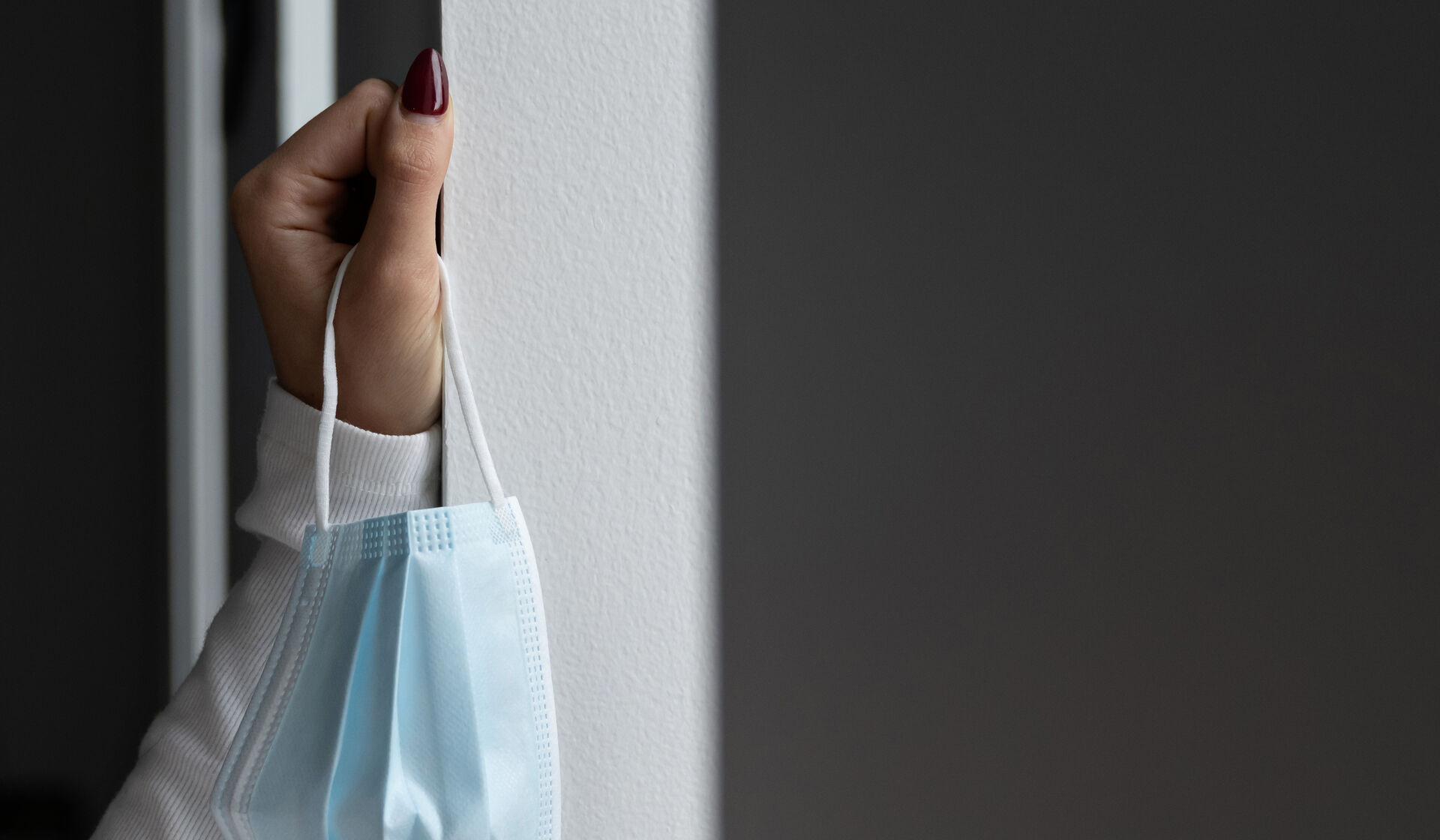When the University canceled in-person classes in mid-March due to COVID-19, not all students left Ann Arbor. For many of those who remained, the Maize & Blue Cupboard (MBC) — a free food pantry — became a lifeline.
Some 300 undergraduate students were consolidated into North Quad, South Quad, and West Quad, while another 1,700 students stayed nearby in off-campus housing. The only dining hall that remained open was in South Quad, and for safety reasons it offered only takeout food.
“Right now, we have about 40 to 50 people a day coming in from the U-M community,” Steve Mangan, the senior director of Michigan Dining, said of MBC in late April. The pantry, located in the lower level of the Betsy Barbour residence hall, had previously operated as a monthly food distribution pop-up shop in various locations on campus. It found its permanent home in April 2019.
During the academic year, the pantry welcomes roughly 150 to 200 visitors a day. It offers fresh produce, dairy, fruit, vegetables, and both canned and frozen goods. It also stocks cooking equipment and household products — all available for free. “It was a much-needed resource on campus,” says Mangan, who credits students from the University of Michigan Sustainable Food Program for driving the initiative that led to MBC’s existence.
Currently, it is operating seven days a week, for a total of 25 hours, just as it did before the pandemic. Now, however, there are new regulations in place. Social distancing markers keep shoppers 6 feet apart while waiting to enter the pantry, and only one person at a time is allowed inside along with a few staff and volunteer members. To limit time inside the pantry, shoppers must choose from one of four pre-made boxes (vegetarian, non-vegetarian, pork-free, and gluten-free). Each is then given a few minutes to gather other items. No preregistration is required; only an Mcard is needed, which means faculty and staff experiencing financial difficulties are also welcome, though the majority of patrons are students.
“More than 30% of U-M students experience some food insecurity,” Mangan said. “Food insecurity is not just about food, it is about housing and financial insecurity. We have students who are couch surfing with no stable place to sleep and then can’t study because they are hungry and tired. Data shows just how much that can affect a student’s grade point average.”
He adds that future efforts will extend beyond the pantry. “We want to have MBC kitchen support: cooking classes and virtual shopping to teach people about SNAP and how to manage their finances,” said Mangan, referring to the Supplemental Nutrition Assistance Program. Already, MBC operates as an important resource for the U-M community, stocking flyers from the Office of Financial Aid, Student Legal Services, and Counseling and Psychological Services that detail where students can go for help with economic, legal, and mental health issues.
Mangan reported that little food from the closed dining halls and campus cafes went to waste. “We were able to move perishables and push things down the line into MBC,” he said. As for the pantry’s role in the upcoming academic year, Mangan said, “If this pandemic goes on, it may be needed in the fall more than ever.”
Jennifer Conlin, ’83, is the deputy editor of Michigan Alumnus.






